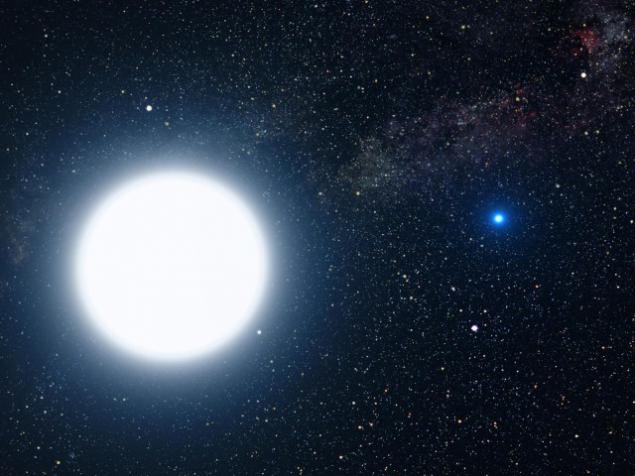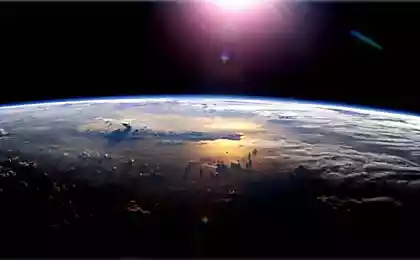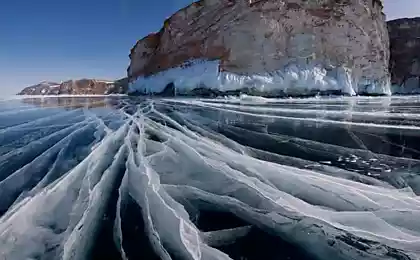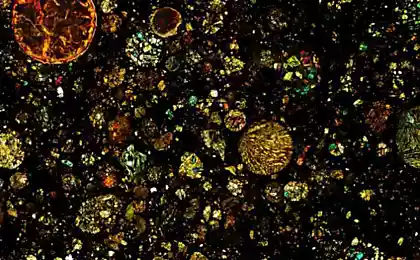562
How long will life on earth if the sun goes out
Gradual ostyvanieChashka with hot coffee, set in the refrigerator cools down instantly. Similarly, if the sun is "off", which is actually physically impossible, the Earth, compared with the surrounding space will stay hot a few million years. However, the inhabitants of our planet will feel the cold much earlier.

During the week, the average global surface temperature drops below 17 ° Celsius. And for the year - up to minus 40. The upper layers of the oceans will freeze, but the ice will be "warm" water in the depths of the oceans from freezing and prevent another hundred thousand years.

"In the course of millions of years after the Earth will reach a stable temperature of minus 160 °, in which heat from the planet's core, will be equal to the heat that it radiates into space," - explains the professor of planetary sciences at Caltech, David Stevenson.
Although some microorganisms that exist in the Earth's crust, survive, life on earth will stop very quickly. Photosynthesis stops immediately, and most plants die within a few weeks. Large trees, however, can live for decades, thanks to a slower metabolism and substantial reserves of sucrose.
People could stay in the submarines in the deep parts of the ocean and warm, but a more attractive option is a nuclear and geothermal habitat. The best place to stay in such a situation - Iceland. The island's population is already heats 87 percent of its homes with geothermal energy, and, according to a professor of astronomy at the University of Rochester Eric Blackman, people can continue to use volcanic heat for hundreds of years.
Of course, the sun heats the Earth is not just, it also keeps it in orbit. If his weight suddenly disappear, which in principle is not possible, our planet would simply fly like a balloon that inflated to the limit and drastically out of hand.
via naked-science.ru/article/nakedscience/29-07-2013-297

During the week, the average global surface temperature drops below 17 ° Celsius. And for the year - up to minus 40. The upper layers of the oceans will freeze, but the ice will be "warm" water in the depths of the oceans from freezing and prevent another hundred thousand years.

"In the course of millions of years after the Earth will reach a stable temperature of minus 160 °, in which heat from the planet's core, will be equal to the heat that it radiates into space," - explains the professor of planetary sciences at Caltech, David Stevenson.
Although some microorganisms that exist in the Earth's crust, survive, life on earth will stop very quickly. Photosynthesis stops immediately, and most plants die within a few weeks. Large trees, however, can live for decades, thanks to a slower metabolism and substantial reserves of sucrose.
People could stay in the submarines in the deep parts of the ocean and warm, but a more attractive option is a nuclear and geothermal habitat. The best place to stay in such a situation - Iceland. The island's population is already heats 87 percent of its homes with geothermal energy, and, according to a professor of astronomy at the University of Rochester Eric Blackman, people can continue to use volcanic heat for hundreds of years.
Of course, the sun heats the Earth is not just, it also keeps it in orbit. If his weight suddenly disappear, which in principle is not possible, our planet would simply fly like a balloon that inflated to the limit and drastically out of hand.
via naked-science.ru/article/nakedscience/29-07-2013-297
10 facts about the habits of the bestselling book "The Psychology of bad habits"
Life hacking: how to use a simple calculation to make the best decision























